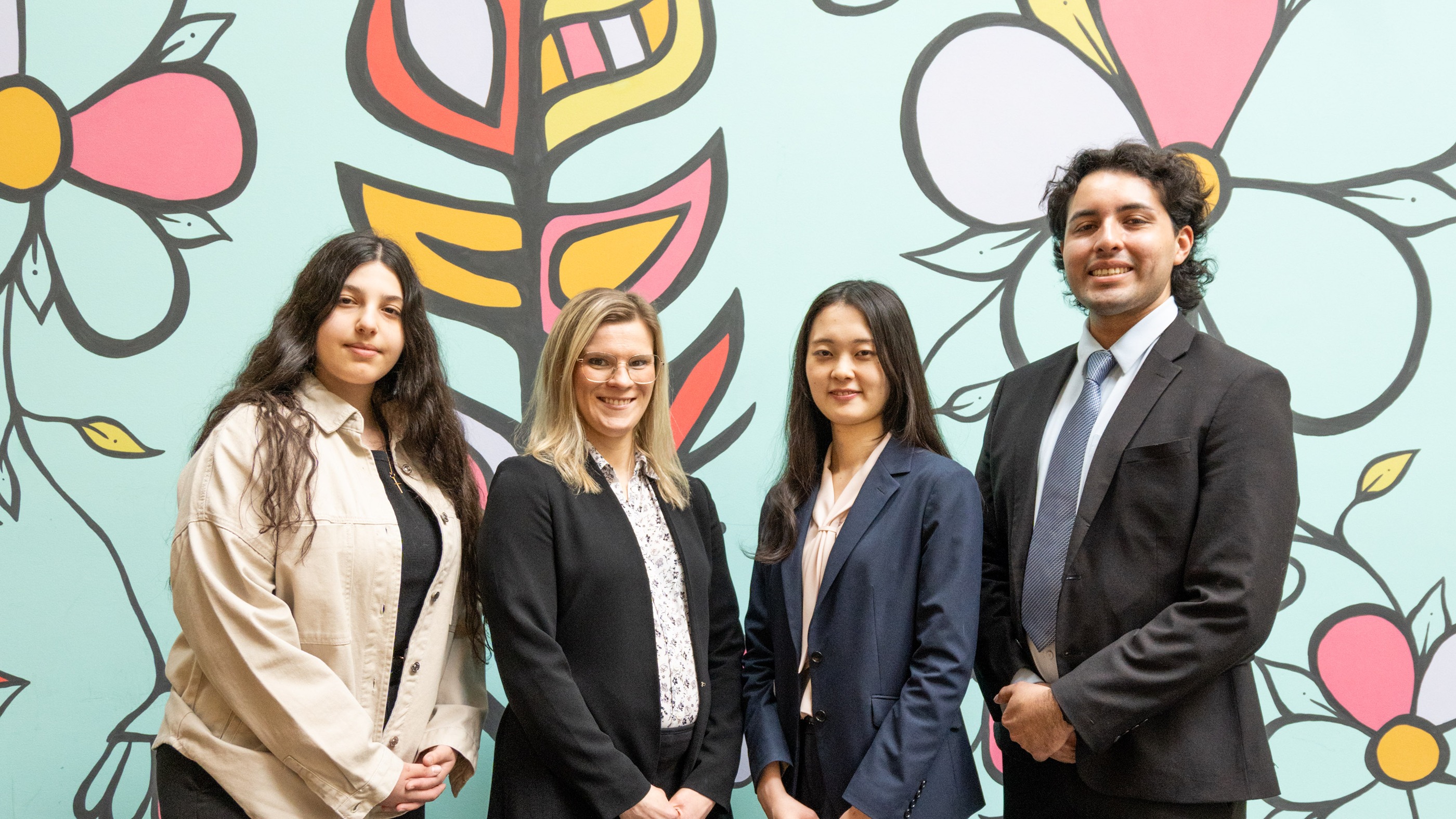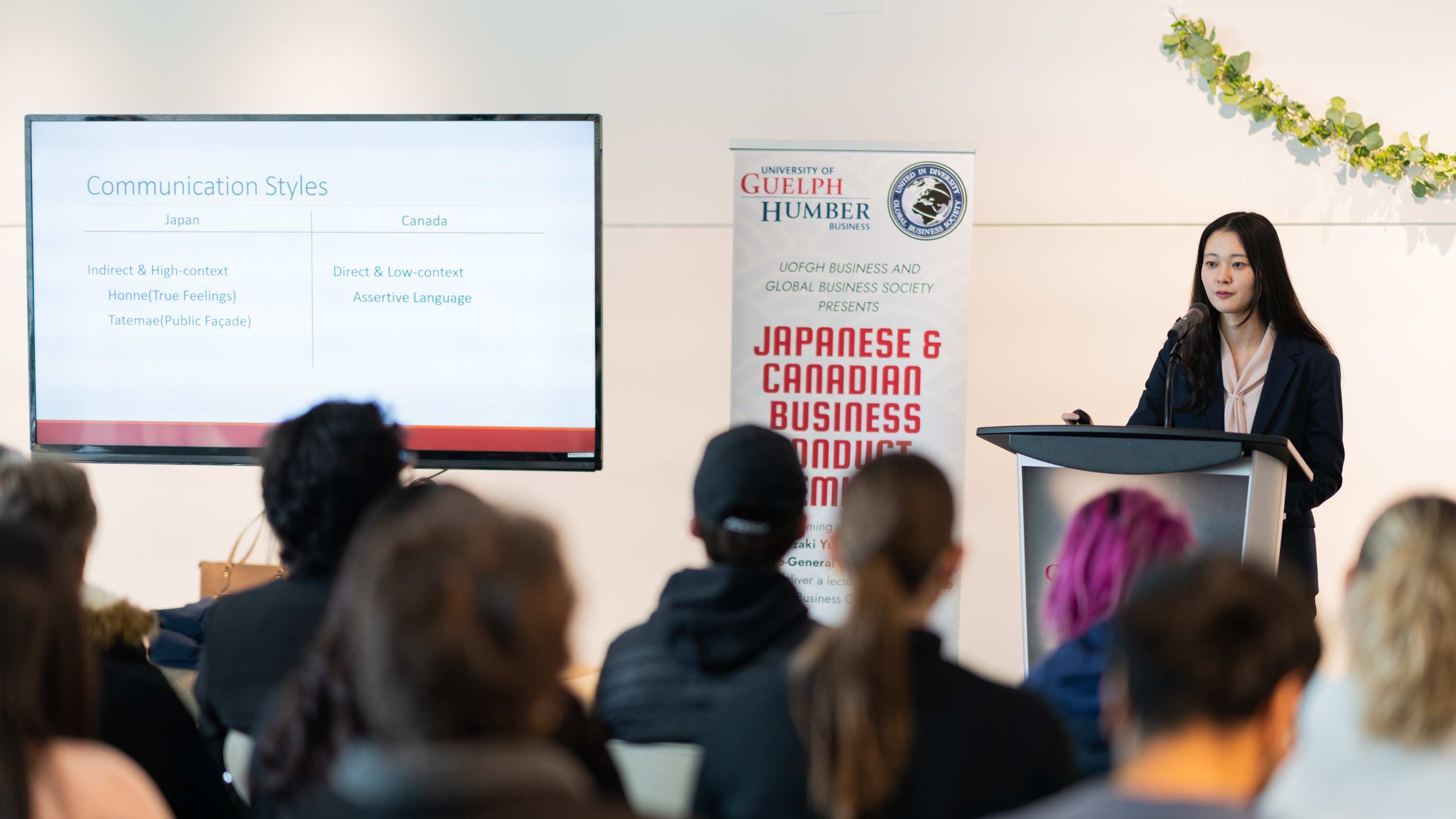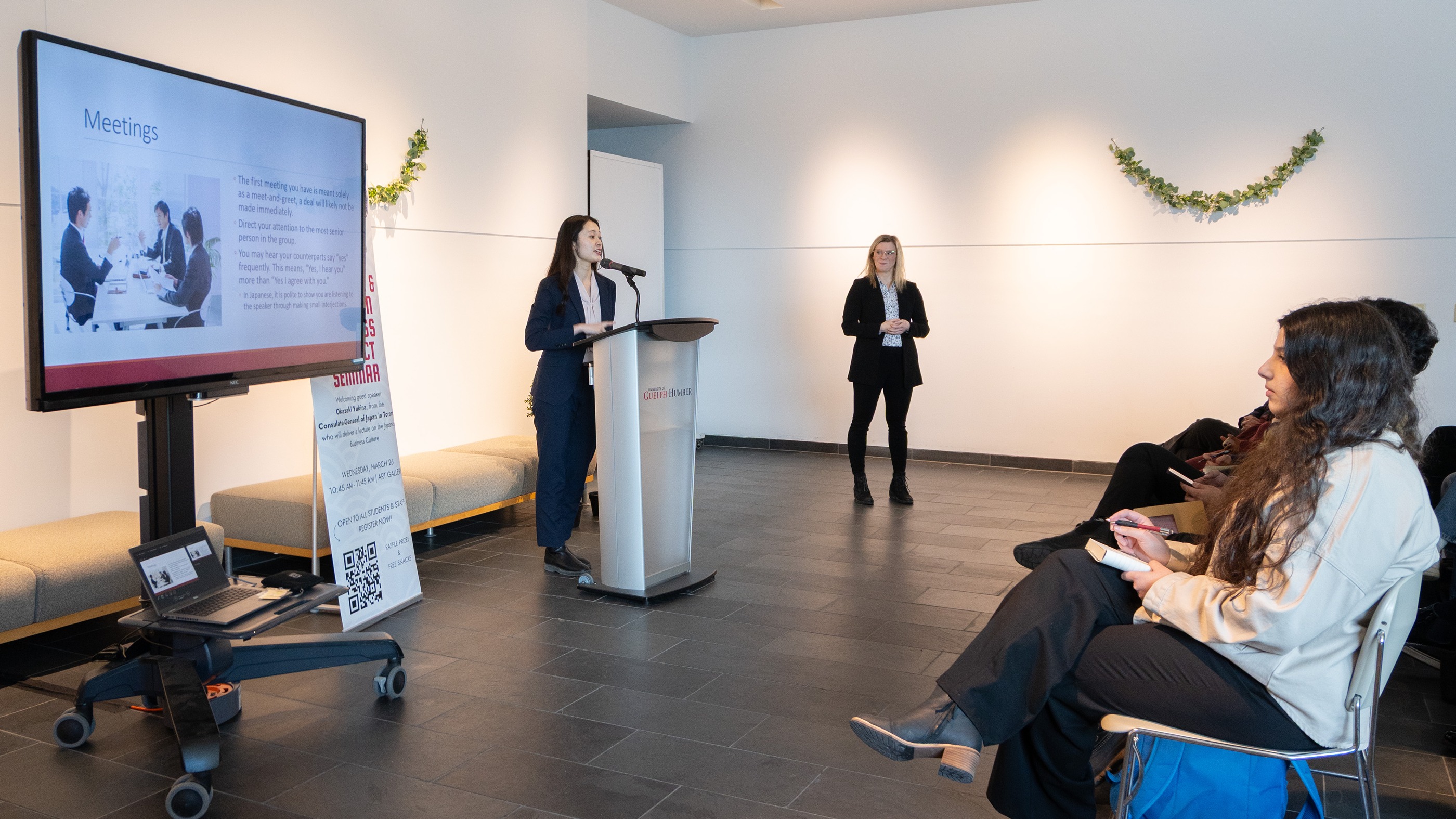Written by Business students Krystal Zarifa and Fernando Miron Guzman

Often, people believe they understand a culture based on what they hear about it, but the reality is that true understanding comes through experience and education. Like many others, we assumed we had a decent grasp of Japanese culture — though in hindsight, our knowledge was based on common symbols including cherry blossoms, sushi, and anime. We thought we’d seen enough content through social media and our own personal research, but it turns out that we hadn’t even scratched the surface.
However, experiencing Japanese consulate member Okazaki Yukina's guest lecture at the University of Guelph-Humber served as a reality-check that understanding a culture surpasses what we see online, and that direct engagement is key to learning. When it comes to communicating and collaborating in the global workplace, it is essential to be conscious of culture to achieve successful intercultural communication.

The seminar did more than describe Japanese business culture; it explored the thought process behind these traditions. Through her knowledge, the consulate member emphasized that Western methods are not the only ones to exist. As students with different cultural backgrounds, this was easy to realize. Cultural values are critical for working in the international business field. For example, Japan’s high-context communication style, being indirect and subtle, heavily differs from Canada’s low-context direct style. Something as simple as responding with a “no” in Canadian culture, contrasts with Japan’s non-confrontational response of “I’ll try”. Different cultures have different decision-making approaches. Japan’s approach, known as nemawashi, is a consensus-driven tactic that embodies the collectivist mindset.
In Japan, communication and presentation go hand in hand. Business cards are seen as an extension of oneself, requiring thoughtful care, presentation, and appreciation when exchanged. On a similar note, gift-giving involves effort from both the giver and receiver. Receivers are expected to accept gifts with both hands, like the custom for business cards. A notable cultural aspect in Japan happens to be that there is little to no physical contact. Compared to Western cultures, bowing is the equivalent to a handshake. Okazaki emphasizes this by stating “what’s unspoken matters more than what’s said,” which is something that highlights the importance of gestures in Japan.
This lecture made us think about the idea of perception versus perspective. The terms are often used interchangeably, but what is overlooked is that perception is internally inspired, based on personal experiences and biases, while perspective can be considered an external viewpoint. This seminar highlighted the importance of considering all perspectives, and not only relying on one’s own perception. Recognizing another person’s outlook doesn’t necessarily mean agreeing with them, but it indicates being open to their frame of reference.

We frequently discuss in the Business program, over multiple courses, how vital it is to do research and study the culture of others when conducting business internationally. Misunderstandings or ignoring other cultures’ traditions and business practices can be seen as disrespectful and can result in failed business dealings. In many cases, taking the step to understand the other culture is the key to success in the global workplace.
This seminar was exactly what we needed to learn from before stepping into a culture so rooted in intention. Hoping to take away as much as possible while visiting Japan, we are excited to put these teachings into practice on the upcoming study abroad trip.
Thanks to this seminar and consulate member Okazaki Yukina, we are no longer entering this experience unprepared, but informed, curious, and ready to connect. While we still have much to learn, we now have a strong foundation to build on.
Written By: Krystal Zarifa and Fernando Miron Guzman
The students will travel to Japan for the study abroad course “Japan: History, Economy, and Cultural Dynamics” in May 2025, earning credit for the course as well as gaining cultural enrichment and lifelong memories during this incredible trip. To learn more about global learning opportunities at the University of Guelph-Humber, click here.


